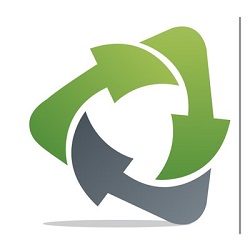 Friday, July 26, 2024
Friday, July 26, 2024  Friday, July 26, 2024
Friday, July 26, 2024 
Got news? Next submission deadline is Friday at 5:00 p.m.
Click here to submit YOUR news

TORONTO, Oct. 18, 2018 /CNW/ – A new study released today finds that many municipalities in Ontario have policies that prohibit or severely limit the use of recycled asphalt and concrete in road construction and other public works.
The result? Every year, millions of tonnes of this material, which could be reused in municipal infrastructure projects, are instead being stockpiled in mountains of urban rubble or dumped in landfill.
“And that’s a terrible waste of a valuable resource,” says Rob Bradford, Executive Director of the Toronto and Area Road Builders Association (TARBA).
Municipalities with low rates of concrete and asphalt recycling are also forfeiting opportunities to help the environment by: lowering fuel consumption and greenhouse gases associated with trucking new aggregate, diverting used aggregate from the waste stream, lessening the impact of quarry operations, and building more sustainable infrastructure.
Voters are being urged to raise this issue with the candidates in the upcoming municipal elections, and to demand their local and regional representatives take action.
The independent research, commissioned by TARBA, identifies the municipalities which are the worst performers in recycling aggregate. These “Laggards” are: Mississauga (at the bottom of the list with a score of 4 out of 100), Oshawa(10), Peel Region (14), Durham Region (20), Niagara Region (32), Halton Region (34), Brampton (38), Windsor (40), and Kingston (40).
The municipalities in the middle of the pack are: Burlington (44), Waterloo (46), Barrie (46), and Hamilton (48).
Those ranked as the “Leaders” are: Ottawa (54), York Region (56), London (58), Kitchener (58), Markham (64), Cambridge(72), and at the top of the list, Toronto (76).
While there is room for improvement even among the “Leaders”, the municipalities in the “Middle Group” and especially the “Laggards” need to change their policies and tendering specifications so they support – rather than hamper – aggregate recycling.
“They should be doing a much better job, a much greener job, of recycling asphalt and concrete,” says Bradford. “They need to be part of the solution rather than part of the problem.”
Only about 7% of the aggregate needed in Ontario now comes from recycled sources. In contrast, some European countries use up to 20% recycled aggregate. Ontario’s Ministry of Transportation also uses about 20% recycled materials in its highway construction.
The research examines the aggregate recycling policies and practices of five regional and 15 single or lower-tier municipalities in Ontario. The study was conducted in July and August, 2018.
“Residents have a right to know whether their municipality is doing a good job – or not – of recycling asphalt and concrete,” says Bradford. The municipalities which declined to respond to the survey were: Guelph, Vaughan, Oakville, Brantford and Oshawa. (TARBA was able to obtain data on Oshawa from other sources.) Waterloo Region provided only partial data.
TARBA has joined with other industry groups to launch a campaign to raise public awareness of this issue. The supporting organizations include: the Heavy Construction Association of Toronto (HCAT), Greater Toronto Sewer and Watermain Contractors Association (GTSWCA), Ontario Sewer and Watermain Construction Association (OSWCA), and Residential and Civil Construction Alliance of Ontario (RCCAO).
The group plans to continue to monitor the municipalities and make similar reports in the future. “It is our hope that public awareness of this issue will bring about positive change and improved aggregate recycling in the years ahead,” says Bradford.
Go to www.tarba.org for additional information, including: the full research report, a new video, photo gallery, b-roll footage, backgrounders, and an FAQ. Check us out on Twitter and Facebook.
Watch our video and learn more about the benefits of joining Construction Links Network – the peer-to-peer network sharing platform for the construction, building and design community.
Press Releases | Project Updates | New Appointments | Awards & Milestones | Company News | New Products/Services | Brochures | Videos | Infographics | Blog Sharing | Events and More